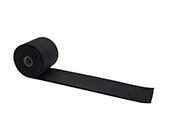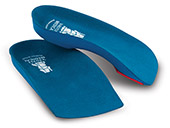Resistance Bands Exercises
Resistance Bands Exercise Guide

Resistance training refers to using your limbs against a resistant force, this could be your own body weight, dumbbells/weights, gravity, and resistance bands.
Although resistance training methods share the same benefits such as increased muscle strength, endurance, and even effective weight loss – the different means of achieving these do not have the same results.
Traditional resistance training through weights provides “greater resistances with free weights” and more consistent muscle training due to the fixed resistance according to The Conversation (2020).

But this should not make you discount the health benefits that can be gained, although Resistance bands are less effective at building muscle mass; some research indicates that “athletes who add variable resistance to 1 training session per week may enhance their athletic performance” [1]
As a result of the varied resistance, it was found that athletes that incorporated resistance bands were able to achieve superior performance results compared to those who didn’t.
Therefore, traditional weightlifting is more suitable for gaining muscle mass but resistance bands have still been proven to be effective for improving muscle strength and muscle quality.

In a study [2] on the effects of training with elastic resistance versus conventional resistance on muscular strength it was found that “Elastic resistance training is able to promote similar strength gains to conventional resistance training, in different population profiles and using diverse protocols.”
Which asserts the claim earlier made about muscle strength. Similar results have been emulated in related studies, one article suggests that Resistance Bands are a “feasible alternative to dumbbells in flyes and reverse flyes” [3] in a study exploring the difference between resistance bands and conventional weight training in regard to Upper Body Muscle Activity

This is interesting as some studies found that “Changes in muscle size and activity were insignificant” [4] so although resistance bands have proven that they are a more viable option for muscle strengthening due to the varied consistency and achieve similar levels of muscle activity as free weights in certain key muscle groups, in reality, they do not offer the same muscle-building benefits and often fail to emulate the muscle activity achieved from weighted resistance training.
This essentially means that resistance bands aren’t an equal alternative for free-weight resistance training but the reasons why they fail to produce the same results as free weights in muscle gain, make resistance bands and better option for muscle strength, endurance and sometimes even muscle activity.

Most people who are interested in using resistance bands don't really care about significantly building muscle size though so falling short in this regard doesn't really matter, especially since the people more likely to use Elastic resistance training will actually gain muscle from it as these people include groups such as the elderly who lose significant amounts of muscle size with age and therefore can gain it back a lot easier, severely overweight people and people with genetic degenerative disorders that affect muscle size.
In a study on
Now that we have assessed the effectiveness of Resistance Bands in relation to the more traditional resistance training method, we will evaluate why resistance bands could be your solution to working out.
The most obvious benefit of using Resistance Bands as opposed to going to the gym or investing in a set of weights is that they are inexpensive and offer you a cheaper alternative while achieving relatively similar results, another apparent reason for using Resistance bands over free weights is that you could easily do Resistant band workouts at home in a relatively confined space and they’re quite easy to take on the go with you to the office or a training session.

Uses of Resistance Bands
- Home Workout without having to go to the gym
- Light Workouts
- Warm-ups for training sessions/events/matches
- Post-surgery recovery
- Preventing age-induced muscle atrophy
- Muscle Strengthening
Different types of Resistance Bands
If you want to learn about the different types of Resistance bands then please take a look at our Resistance Bands Buyers Guide which breaks down what resistance bands are further and explains the most popular types of Resistance Bands as well as what they can be sued for and which products we recommend.
Easy Resistant Band Workouts and Videos
In order to show you how easy workouts with resistance bands are; we’ve compiled some educational videos and explanations that will demonstrate how you can use resistance bands to achieve a challenging and beneficial workout that targets specific muscles and muscle groups.
The following video is made by the Newcastle Falcons in collaboration with Physique, Andy Shea, the head of Physio takes us through how you can use Resistance Bands for Glute Activation. Glute activation is a key part of warming up as it can help prevent injuries such as hamstring or lower-back injuries and helps prepare the relevant muscles for more intensity. Watch the video for a comprehensive walkthrough of how exactly the exercises are executed.
The next video was done in collaboration with Ian Gatt, Head of Performance Services and Lead Physio at GB Boxing. This is a must-watch for anyone looking at strengthening and conditioning techniques for the hands and upper body. Ian explains and demonstrates how the larger resistance bands can be used to achieve strength training in the wrist, thumb, and biceps but he also goes on to demonstrate additional upper body exercises such as shoulder workouts with smaller resistance bands.
Resistance bands are also instrumental on the road to recovery, in the next video, Graham Anderson – who is a tennis physio and has 30 years of working with professionals under his belt; explains how you could use resistance bands post-operation in order to recover effectively from a Knee Surgery. This could be any type of knee operation because the aim is to strengthen the muscles so it can be used on ligament tear injuries such as the MCL, LCL and ACL after you have gone through the necessary rehab prescribed by your physio or doctor.
The last video that demonstrates how you might use resistance bands is also by Graham Anderson, Physiotherapist to the professional tennis players on the ATP Tour and Wimbledon Championship, he will take us through how you can use resistance bands to strengthen the core shoulder muscles and help improve performance through higher muscle strength. In case you were wondering, you don’t have to use a tree as well – any sturdy and similarly shaped structure or object will achieve the same effect.
References
[1] Joy, J. M., Lowery, R. P., Oliveira de Souza, E., & Wilson, J. M. (2016). Elastic bands as a component of periodized resistance training. Journal of strength and conditioning research, 30(8), 2100-2106.
[3] Bergquist, R., Iversen, V. M., Mork, P. J., & Fimland, M. S. (2018). Muscle activity in upper-body single-joint resistance exercises with elastic resistance bands vs. free weights. Journal of human kinetics, 61, 5.
The Conversation (2020) Resistance training: here's why it's so effective for weight loss (theconversation.com)
[2] Lopes, J. S. S., Machado, A. F., Micheletti, J. K., De Almeida, A. C., Cavina, A. P., & Pastre, C. M. (2019). Effects of training with elastic resistance versus conventional resistance on muscular strength: a systematic review and meta-analysis. SAGE open medicine, 7, 2050312119831116.
[4] Dayne, A., Dayne, A. M., McBride, J. M., Haines, T. L., Larkin, T. R., Kirby, T. J., ... & Triplett, N. T. (2010). Effect Of Elastic Band Resistance Training During Simulated Microgravity On Neuromuscular Function. The Journal of Strength & Conditioning Research, 24, 1.
[5] Liao, C. D., Tsauo, J. Y., Huang, S. W., Ku, J. W., Hsiao, D. J., & Liou, T. H. (2018). Effects of elastic band exercise on lean mass and physical capacity in older women with sarcopenic obesity: A randomized controlled trial. Scientific reports, 8(1), 1-13.







Did you find this article useful?
Why not share this with a colleague, patient or friend?